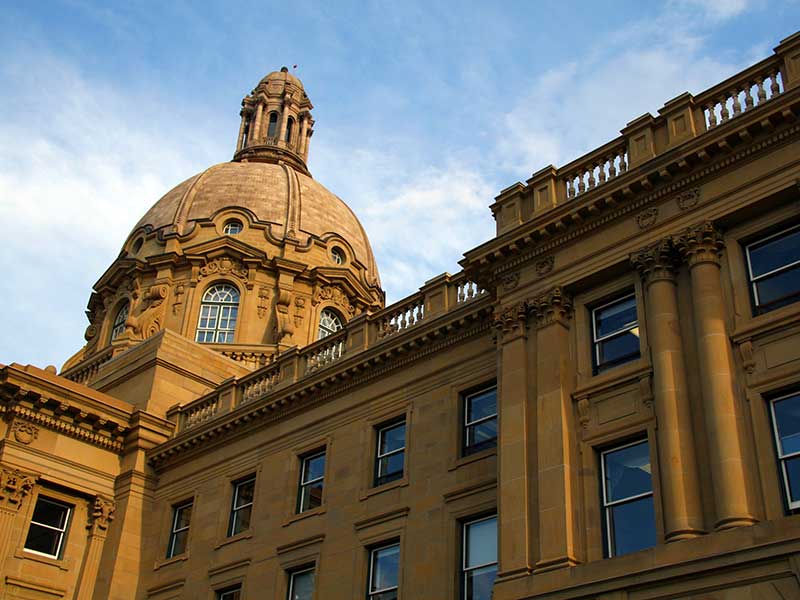
This article appears in the Oct. 2022 issue of Investment Executive. Subscribe to the print edition, read the digital edition or read the articles online.
The politicking is running hot and heavy in Alberta. Voting is underway to select a new leader of the governing United Conservative Party (UCP) — and, therefore, a new premier — and a general election is just eight months away.
In the leadership drama, two former leaders of the Wildrose Party, Danielle Smith and Brian Jean, and former finance minister Travis Toews, lead a group of seven contenders to replace outgoing premier Jason Kenney. Kenney, battered from both the left and the right over his handling of the pandemic, barely won a leadership vote in May and immediately committed to stepping down as leader.
Most of the attention has been on Smith, whose signature platform is the proposed Alberta Sovereignty Act which, she contends, would allow the province to refuse to enforce federal laws it believes are against Alberta’s interests. She has committed to passing the legislation, for which there is yet no wording, on Day 1 of her premiership.
The campaign has been marred by interference from both Kenney and Lt.-Gov. Salma Lakhani. Kenney called the sovereignty act “cockamamie” and “nuts,” which Smith characterized as inappropriate political interference in favour of Toews, Kenney’s former finance minister. (Former British Columbia premier Christy Clark called it “batshit crazy.”)
Lakhani, for her part, told CBC News that her office would independently review the sovereignty act for constitutionality. Smith was quick to weaponize those comments by pointing out that the vice-regal is a federal — read: Trudeau — appointment. Lakhani would have been better off with a curt “no comment.”
Lawyers and constitutional scholars have generally agreed that the legislation would be unconstitutional and would lead to a crisis of jurisdiction in this country. But that hasn’t stopped Smith, who is committed to grievance politics and attacks on Ottawa to win support.
Her proposal also has raised concerns among the province’s business class. Deborah Yedlin, president and CEO of the Calgary Chamber of Commerce, took to Twitter to voice her members’ displeasure: “The Alberta Sovereignty Act would cause significant investment uncertainty, translate into capital being invested in other jurisdictions and have a negative effect on the Alberta economy,” she wrote. “It’s the last thing this province needs. We need to attract investment, not scare it away.”
The results of the UCP vote will be announced on Oct. 6. Waiting in the wings are Rachel Notley and the Alberta New Democratic Party. Notley was premier from 2015 until 2019, and many of her top lieutenants remain on the Opposition benches. They have been out-fundraising the UCP for the past few years and expect a strong showing in May’s provincial election.
They’ll have plenty of ammo to discharge at the UCP. The health-care system remains in crisis and the government has fought with everyone from teachers to doctors and, most recently, legal aid lawyers, who say the system they’re a part of is being bled dry of funding.
In the ruling party’s favour is a recent $13.2-billion budget surplus brought on by high oil prices and increased royalty payouts from maturing oilsands projects. The government has committed the money to paying down debt and contributing to the long-neglected Heritage Savings Trust Fund. Calls are coming from every corner of the province for the government to invest some of that money in systems and infrastructure but, so far, those calls have been ignored. Forecasts are that the provincial government will enjoy similar surpluses in the next few years, so, whoever gets into power next spring will have an enviable challenge on their hands.
Uncooperative co-executor passed over by court
Case illustrates the risks of appointing multiple executors